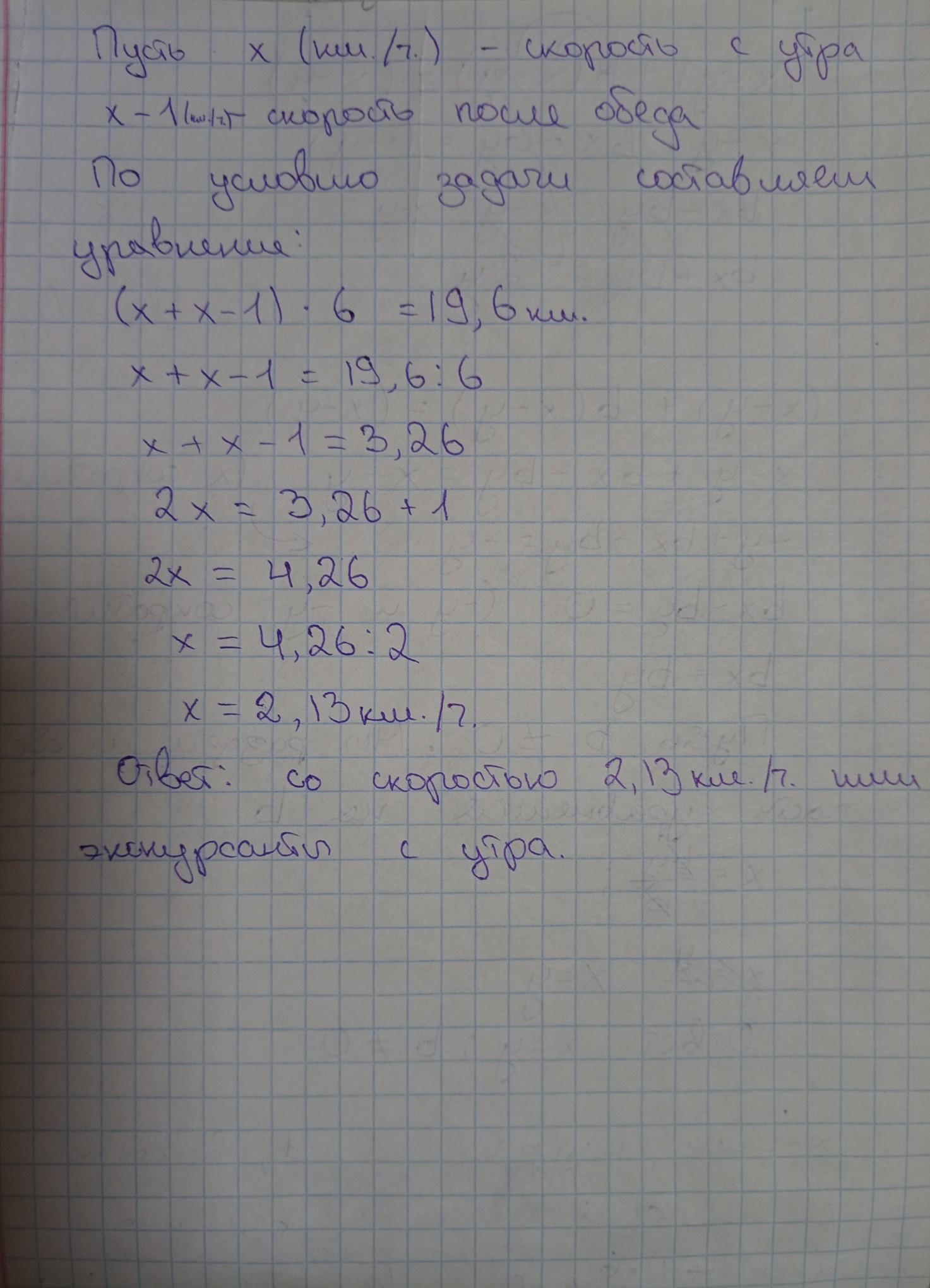Предмет: Алгебра,
автор: irina515xox
Экскурсанты за день прошли 19,6 км. С утра они шли 4 час(-а), а после обеда еще 2 час(-а). Сколько километров экскурсанты прошли утром, если после обеда их скорость снизилась на 1 км/ч. С какой скоростью шли экскурсанты утром?
Ответы
Автор ответа:
1
Ответ:
2,13 км/ч
Объяснение:
если что-то непонятно написано,простите
Приложения:

irina515xox:
Точно?
должно быть
если нет,прости пожалуйста
Всë в порядке, но правильный ответ: 3,6км/ч
прости
Похожие вопросы
Предмет: История,
автор: creusi4ek020635520
Предмет: Математика,
автор: damir142020
Предмет: Информатика,
автор: kryzhneva26
Предмет: Українська мова,
автор: Аноним
Предмет: Английский язык,
автор: beautifuull